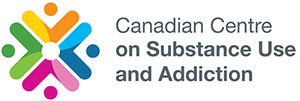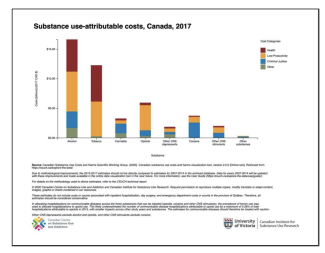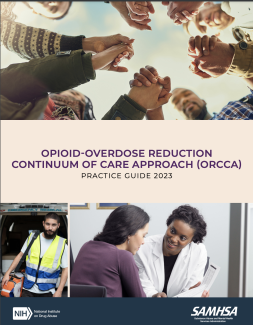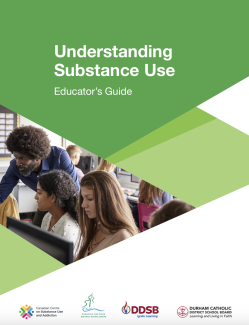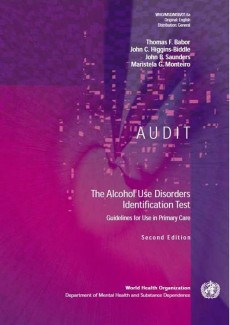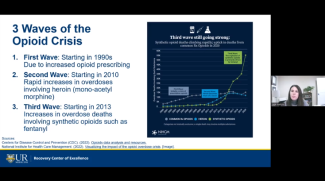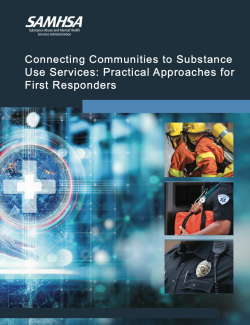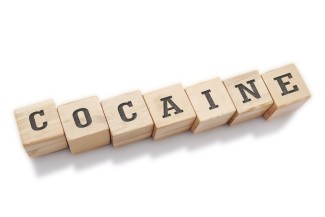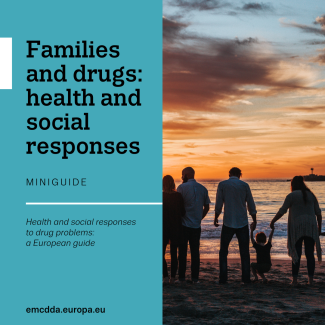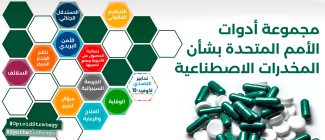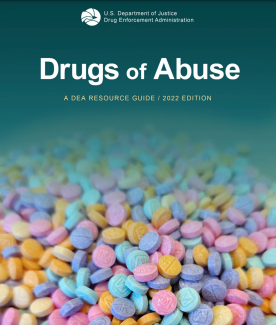Search
Alcohol Consumption and Adherence to Canada’s Guidance on Alcohol and Health
This brief examines the average alcohol consumption of people in Canada and where it falls within the risk zones outlined in Canada’s Guidance on Alcohol and Health (CGAH). The publication presents updated data on weekly drinking patterns...
Canadian Substance Use Costs and Harms Online Data Visualisation Tool
CSUCH’s data visualisation tool can be used to estimate substance use trends across the country. The data helps inform programs, practices, and research to protect communities, save lives, and improve the well-being of people in Canada.
...
Opioid-Overdose Reduction Continuum of Care Approach (ORCCA) Practice Guide 2023
This guide was drawn from HEALing Communities Study (HCS) learnings to-date and expert insights to provide guidance regarding implementation of ORCCA menu strategies.
Understanding Substance Use: Educator's Guide
The guide, co-developed by the Canadian Centre on Substance Use and Addiction (CCSA) and several school boards, aims to equip educators with knowledge and resources to promote well-being and reduce substance-related harms among youth.
Des...
Stimulants: Understanding Use, Impact, and Responses Reading List
Stimulants are a class of drugs that act on the central nervous system, increasing alertness, energy, and attention while elevating mood. They achieve these effects by enhancing the activity of neurotransmitters such as dopamine and...
Screening, Brief Intervention, and Referral to Treatment Reading List
Instrument: Drug Abuse Screening Test (DAST-10)
The Drug Abuse Screen Test (DAST-10) was designed to provide a brief, self-report instrument for population screening, clinical case finding and treatment evaluation research. It can be used with adults and older youth.
The DAST-10 yields...
AUDIT : the Alcohol Use Disorders Identification Test : guidelines for use in primary health care
This manual introduces the AUDIT, the Alcohol Use Disorders Identification Test, and describes how to use it to identify persons with hazardous and harmful patterns of alcohol consumption. It is distributed with "Brief intervention for...
Addiction Language Guide
The Addiction Language Guide serves as a comprehensive resource designed to address and combat stigmatizing language associated with addiction. Stigmatizing language often involves attaching negative labels and stereotypes to specific...
New draft guidance on harmful gambling
The new draft guideline on harmful gambling recommends health professionals should ask people about gambling if they attend a health check or GP appointment about a mental health condition.
These guideline aims to ensure that those...
Synthetic Opioids: Navigating a Changing Landscape in the Treatment of Opioid Use Disorder
Connecting Communities to Substance Use Services: Practical Approaches for First Responders
Abstract
During their day-to-day work, first responders such as law enforcement officers, firefighters, and emergency medical services (EMS) personnel often encounter people who use drugs (PWUD), including alcohol, opioids, stimulants, and...
Substance Use in the LGBTQ+ Community: Reading List
Lesbian, Gay, Bisexual, Transgender and Queer (LGBTQ+) Pride month is celebrated each year during the month of June. Here you can find a list of resources and research on the topic of substance use among the LGBTQ+ community.
1) This repor...
Cocaine Reading List
Cocaine is an addictive stimulant drug that originates from the leaves of the coca plant, which is indigenous to South America. The drug's effects include heightened alertness, attention, and energy, as well as feelings of euphoria and...
ВІЛ та вживання психоактивних речовин: список читання
Всесвітній день боротьби зі СНІДом проходить у грудні кожного року. Цей список читання містить перелік досліджень, публікацій та ресурсів для практиків, пов'язаних з ВІЛ/СНІДом. У нас також є мережа, присвячена ВІЛ та ВГС , де ви можете...
The Canadian Community Epidemiology Network on Drug Use (CCENDU) Bulletin: An Update on Stimulant Use and Related Harms in Canada and the United States
The Canadian Community Epidemiology Network on Drug Use (CCENDU) is a pan-Canadian network of community partners co-ordinated by the Canadian Centre on Substance Use and Addiction (CCSA). The network has sites in British Columbia, Manitoba...
Families of people who use drugs: health and social responses
This miniguide is one of a larger set, which together comprise Health and social responses to drug problems: a European guide.
It provides an overview of the most important aspects to consider when planning or delivering health and social...
Інструментарій для синтетичних наркотиків Організації Об'єднаних Націй
Інструментарій ООН з синтетичних наркотиків підтримує міжнародне співтовариство у впровадженні комплексних заходів реагування для вирішення проблеми синтетичних наркотиків.
Інструментарій був розроблений у відповідь на резолюції Комісії...
Наркотики для зловживання
«Наркотики зловживання» надає чітку, наукову інформацію про наркотики у фактичному, прямому вигляді.
За допомогою інформації в цьому посібнику батьки та опікуни можуть допомогти своїм дітям робити розумний вибір і уникати наслідків...
Share the Knowledge: ISSUP members can post in the Knowledge Share – Sign in or become a member

